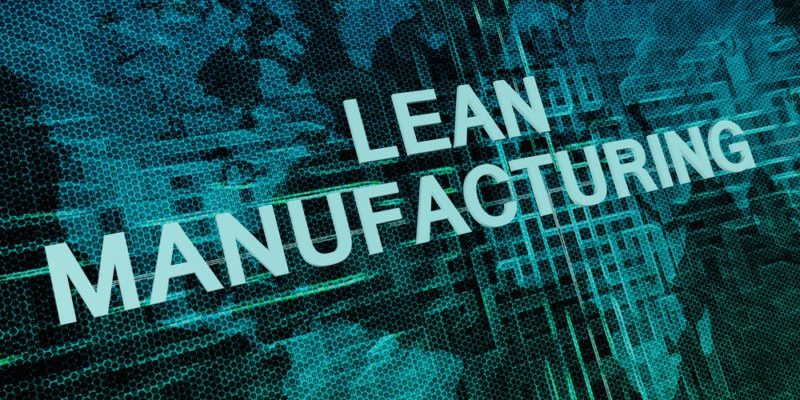Lean Manufacturing and MES Solutions: Can They Coexist?
While lean manufacturing has become more prevalent, the approach is not always amenable to the latest industry technologies. Lean manufacturing originates in the Japanese automotive industry, a localized manufacturing sector that once operated under tight financial constraints. In response to those economic conditions, Japanese car manufacturers developed a highly efficient “lean” system of manufacturing the cars for which they were later globally renowned.
US manufacturers have been practicing lean manufacturing at increasing rates to simplify their operations and boost productivity. As the uptake of lean manufacturing expands, many warehouse owners still have questions about whether or not manufacturing execution systems (MES) are compatible with plants that run on lean production principles. This article underscores how MES software from EZSoft can be a good match with your “lean” manufacturing processes.
In previous years, adherents to the lean manufacturing system were hesitant to adopt industrial automation solutions. These businesses believed that an MES was antithetical to the philosophy of lean manufacturing and its associated Kanban and Just-in-Time principles. This has prompted many business owners to question how much of a value add an MES really is. The truth is that the results of a manufacturing system can vary. And they depend on the solution you design and your specific business processes.
What are the principles of lean manufacturing?
The fundamental idea behind lean manufacturing is one that aims to reduce waste in the production process. Before you can attain a lean production plant, you must eliminate all procedures and elements that don’t add value to your warehouse and its customers. The ultimate goal is to establish a highly efficient and adaptable workshop floor.
Warehouses that run on lean manufacturing principles must support processes that demand minimal human effort while optimizing warehouse space. The less labor overhead and real estate required to manufacture and distribute your products, the less expensive it is to run your business profitably. Manufacturers have been implementing lean warehouses for more than half a century. And while cost-cutting and waste reduction remain important, delivering maximum value to the customer is at the core of what lean manufacturing represents.
Lean production follows a number of principles. Here are a few of the most recognizable examples:
- Poka-yoke: Consists of error-proofing the warehouse and eliminating time wasted during production inspection processes.
- Andon: Provides visual alerts of the production status and tells you when operator intervention is needed. The process leads to fewer reworks and scraps.
- Kanba: Forms its workflow management based on pull mechanisms that provide signals and indicate when a work cell can receive more inputs.
- SMED: Aims to reduce changeover times while increasing customer service responsiveness.
- Jidoka: This lean methodology deploys just enough automation to boost operator activity while maintaining the operator’s ability to monitor the work cells and intervene for quality control.
- 5S: This approach eliminates waste at poorly organized facilities by following the 5Ss: Sort, Set in Order, Shine, Standardize, and Sustain.
How does lean manufacturing reduce waste?
The lean manufacturing method seeks to eliminate waste in your production systems while, at the same time, maximizing warehouse productivity. Waste is anything that doesn’t add value to the customer experience or elements that your customers are unwilling to pay for. The most effective lean manufacturing system will decrease lead times and lower manufacturing costs while enhancing production accuracy and consistency.
Lean production seeks to eliminate waste by eliminating or reducing the following:
- Excess production goods
- Overstocked and understocked warehouses
- Transport and travel delays
- Unnecessary processing steps
- Defective materials and scraps
- Unplanned employee downtime
What are the limits of lean manufacturing?
Lean manufacturing has evolved significantly over the last half-century but is still regarded as one of the best approaches to trimming costs and increasing efficiency in warehouse production environments. Applying lean principles to your operations means that you’re continuously seeking new ways to improve your systems.
Lean manufacturing requires a deep understanding of your warehouse. At times, lean manufacturing may necessitate substantial operational changes to sustain the production methodology. Under the lean manufacturing approach, most problem solving occurs at the shop floor level, and warehouses that can’t adapt to change won’t benefit from implementing a lean production system.
How will an MES benefit a plant run on lean manufacturing?
Manufacturing execution systems provide real-time insight into your operations, enabling you to capture and analyze all the requisite data for operating and sustaining a lean production facility. Successful lean manufacturing depends significantly upon warehouse analytics and has to follow concise measurements before eliminating waste and boosting productivity.
An MES solution from EZSoft is one of the most reliable tools for implementing a lean production system because it allows you to measure performance and respond with the best practices. Every successful lean manufacturing initiative demands reliable data that can be collected from your warehouse on a continual basis. That’s where a manufacturing execution system comes into play.
Wondering how to find industrial automation companies near me? To learn how an MES from EZSoft enhances your lean production systems through continuous live-time information, complete our request for contact form online now. Alternately, for more on how manufacturing execution systems help lean factories eliminate waste and save time, call us at (484) 568-5040.







